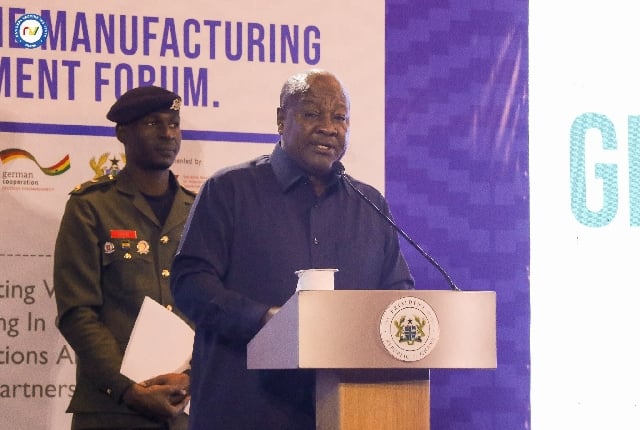Ghana is embarking on an ambitious journey to become a pharmaceutical powerhouse in Africa, spearheaded by a significant financial commitment from President John Dramani Mahama. A $50 million injection will serve as seed funding for the National Vaccine Institute (NVI), propelling the country’s vaccine research, production, and capacity-building agenda. This investment is not merely about infrastructure; it represents a strategic move towards self-reliance, job creation, technology transfer, and ultimately, solidifying Ghana’s position as a leader in pharmaceutical innovation on the continent. The funding will be instrumental in establishing state-of-the-art vaccine manufacturing facilities, ensuring adherence to stringent international regulatory standards, and nurturing a skilled workforce through specialized training programs under the Biomanufacturing Training Consortium. This holistic approach lays the foundation for a sustainable and thriving pharmaceutical sector.
The government’s commitment goes beyond financial investment, encompassing policy reforms designed to prioritize locally produced pharmaceuticals. Within two months, public procurement processes will be restructured to favor Ghanaian-made products. A comprehensive list of these products will be compiled to guide procurement decisions across ministries, departments, and agencies, ensuring a consistent and reliable market for local manufacturers. This commitment to domestic production is further bolstered by government support to facilitate access to regional markets and participation in collaborative procurement initiatives like the African Pooled Procurement Mechanism (APPM). This multifaceted strategy seeks to create a robust domestic market while simultaneously expanding opportunities for Ghanaian pharmaceutical companies within the broader African context.
Recognizing the crucial role of financing in realizing this ambitious vision, the government is implementing measures to de-risk investments and improve access to capital. De-risking guarantees and specialized financial instruments will be deployed to facilitate access to Afreximbank loans for local pharmaceutical companies such as Atlantic Lifesciences and DEK Vaccines. This commitment to supporting domestic manufacturers is mirrored by Afreximbank’s own initiatives, which include new funding allocations for these companies and the establishment of the African Life Sciences Foundation Fund. This fund will be dedicated to supporting vital research into diseases prevalent among African populations, further strengthening the continent’s capacity to address its unique health challenges.
Ghana’s overarching strategy to transform itself into a pharmaceutical hub is built upon three interconnected pillars: substantial investment in infrastructure, the cultivation of a highly skilled workforce, and the implementation of robust policies supported by strong partnerships. The recent Ghana Vaccine Manufacturing Investment Forum, attended by over 200 stakeholders, served as a platform to solidify these pillars, bringing together policymakers, global health institutions, pharmaceutical companies, and development partners. This forum underscores the government’s commitment to fostering a collaborative ecosystem that leverages both domestic and international expertise. The forum itself builds upon the momentum generated by the Africa Health Sovereignty Summit, which launched the SUSTAIN Initiative, further emphasizing the importance of local ownership, regional cooperation, and global collaboration in strengthening health systems across Africa.
The Ghana Vaccine Manufacturing Investment Forum brought together a diverse array of stakeholders, reflecting the broad-based support for this initiative. Participants included key government figures like the Minister of Health, the Minister of Trade, Agribusiness and Industry, and the Deputy Minister of Finance, alongside leadership from the NVI, representatives of the Diplomatic Corps, and prominent organizations such as the World Health Organization, Africa CDC, CEPI, AMA, and IVI. The presence of the Ghana FDA, leading universities, pharmaceutical manufacturers, commercial banks, and development financiers including the World Bank and DEG highlighted the commitment from various sectors to contribute to the growth of Ghana’s pharmaceutical sector. This collaborative approach ensures the initiative benefits from a wide range of expertise and resources.
With this substantial financial commitment and a comprehensive strategy, Ghana is not just aspiring to be a player in the African pharmaceutical landscape; it is actively shaping its own future as a leader. The investment in infrastructure, capacity building, and policy reform demonstrates a clear commitment to developing a robust and sustainable pharmaceutical sector. This commitment, coupled with strong partnerships and a focus on regional cooperation, positions Ghana to become a significant contributor to health security and economic development, not only within its own borders but across the African continent. The $50 million seed funding is not simply a financial investment; it is an investment in the future of healthcare and economic prosperity for Ghana and the region.














